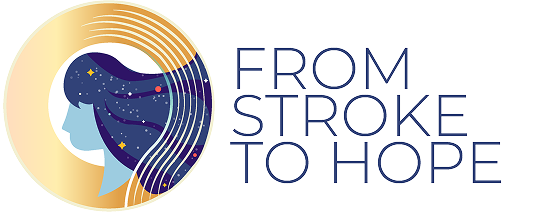For stroke survivors, memory lapses, cognitive difficulties, and trouble managing daily tasks can be incredibly frustrating. Whether it’s forgetting appointments, leaving food in the oven too long, or struggling to keep track of medications, these challenges can impact independence and safety.
Luckily, smart devices like Amazon Alexa and Google Assistant offer a simple, voice-controlled way to set reminders, timers, alarms, and even manage household tasks without the need to rely on memory alone. These devices act as an extra set of hands and a personal assistant—helping stroke survivors regain confidence and maintain routine with minimal effort.
This blog will cover:
✔ Why smart devices are helpful for stroke survivors
✔ Best ways to use Alexa & Google Assistant for reminders and tasks
✔ How voice control makes everyday life easier
✔ Additional smart home features for safety and independence
Why Smart Devices Are Helpful for Stroke Survivors
Many stroke survivors experience cognitive challenges, memory issues, or left neglect that make it difficult to manage daily tasks, schedules, and even personal safety.
Common Challenges That Smart Devices Can Solve:
✔ Forgetting appointments, medication schedules, or household chores
✔ Losing track of time while cooking, resting, or completing a task
✔ Difficulty typing reminders on a phone or using a traditional planner
✔ Trouble reading screens due to vision impairment or left neglect
By simply using your voice, smart assistants like Amazon Alexa or Google Assistant can help remind you of important tasks, set alarms, control devices, and even call for help if needed.
Best Ways to Use Alexa & Google Assistant for Daily Tasks
Here are some of the most effective ways stroke survivors can use voice-activated smart assistants to stay on track:
1. Setting Reminders for Medications, Appointments & Chores
✔ Say: “Alexa, remind me to take my medicine at 8 AM every day.”
✔ Say: “Hey Google, remind me I have a doctor’s appointment on Monday at 10 AM.”
🔹 These reminders repeat as often as you need and help prevent missed medications or therapy sessions.
2. Using Timers for Cooking & Household Tasks
✔ Say: “Alexa, set a timer for 20 minutes for my laundry.”
✔ Say: “Hey Google, set a 40-minute timer for my oven.”
🔹 Why this helps: Many stroke survivors experience memory lapses or difficulty keeping track of time—using timers ensures nothing is forgotten or overcooked.
3. Setting Alarms to Maintain a Daily Routine
✔ Say: “Alexa, wake me up at 7 AM every day.”
✔ Say: “Hey Google, set an alarm for my afternoon nap at 3 PM.”
🔹 Alarms help create structure in daily life, ensuring survivors wake up, rest, and complete tasks at the right times.
4. Making Hands-Free Phone Calls for Help
✔ Say: “Alexa, call John.”
✔ Say: “Hey Google, call my doctor’s office.”
🔹 If an emergency occurs, voice commands allow quick, hands-free calls without needing to find a phone or dial numbers.
5. Creating a Shopping List with Voice Commands
✔ Say: “Alexa, add eggs and milk to my shopping list.”
✔ Say: “Hey Google, remind me to buy groceries tomorrow.”
🔹 This prevents forgetting important grocery items and allows caregivers or family members to view the list on their device.
How Smart Devices Help Stroke Survivors With Cognitive Issues
Many stroke survivors struggle with left neglect, memory loss, or difficulty reading small screens. Voice-activated assistants help by:
✔ Eliminating the need to type or read small text—everything is voice-controlled.
✔ Providing verbal responses instead of requiring visual input.
✔ Giving hands-free access to information—no need to hold or interact with a phone.
🔹 Example: Instead of trying to type out a note, just say the reminder out loud and the device does the rest.
Additional Smart Home Features for Stroke Survivors
Beyond reminders and timers, smart home devices can make life even easier by automating daily functions.
1. Controlling Lights, Thermostats & Appliances
✔ Say: “Alexa, turn off the lights.”
✔ Say: “Hey Google, adjust the thermostat to 72 degrees.”
🔹 Why this helps: If mobility is limited or it’s hard to get up quickly, smart home automation allows stroke survivors to control their environment hands-free.
2. Playing Music & Audiobooks for Relaxation
✔ Say: “Alexa, play calming music.”
✔ Say: “Hey Google, read my audiobook.”
🔹 For those who struggle with reading due to left neglect or visual impairment, audiobooks offer a great alternative.
3. Checking the Weather, News & Calendar Events
✔ Say: “Alexa, what’s the weather today?”
✔ Say: “Hey Google, read me my calendar for today.”
🔹 Staying informed without having to check a screen makes it easier for stroke survivors to plan their day.
Final Thoughts: Smart Devices Make Life Easier for Stroke Survivors
Voice-activated devices like Amazon Alexa and Google Assistant provide a simple yet powerful way for stroke survivors to stay organized, independent, and safe.
✔ Set reminders for medications, appointments, and daily tasks.
✔ Use timers and alarms to avoid forgetting important activities.
✔ Make hands-free phone calls in case of emergencies.
✔ Control lights, appliances, and listen to audiobooks without needing a screen.
💙 If you or a loved one struggles with cognitive or memory issues after a stroke, smart devices can be a game-changer for managing daily life.

